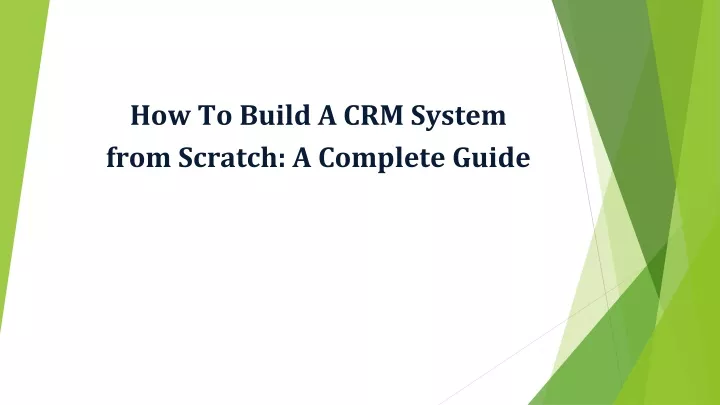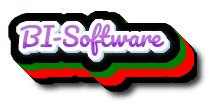In today’s fast-paced business environment, having a robust Customer Relationship Management (CRM) system is essential for driving growth, improving customer satisfaction, and increasing revenue. While there are numerous CRM software solutions available in the market, building a custom CRM system from scratch can provide businesses with a tailored solution that meets their specific needs and requirements. In this article, we will delve into the process of building a CRM system from scratch, discussing the benefits, key features, and best practices to consider.

What is a CRM System?
A CRM system is a software application that helps businesses manage their interactions with customers, clients, and sales prospects. It provides a centralized platform for storing and analyzing customer data, tracking sales and marketing activities, and automating tasks and processes. A CRM system typically includes features such as contact management, lead management, sales forecasting, and customer service and support.
Benefits of Building a Custom CRM System
While off-the-shelf CRM software solutions can provide a cost-effective and efficient way to manage customer relationships, building a custom CRM system from scratch can offer several benefits, including:
- Tailored functionality: A custom CRM system can be designed to meet the specific needs and requirements of your business, providing tailored functionality and workflows.
- Improved data integration: A custom CRM system can be integrated with existing systems and data sources, providing a single, unified view of customer data.
- Enhanced scalability: A custom CRM system can be designed to scale with your business, providing a flexible and adaptable solution that meets evolving needs and requirements.
- Increased security: A custom CRM system can be built with robust security measures, ensuring that sensitive customer data is protected and secure.
- Cost-effectiveness: While building a custom CRM system from scratch may require an initial investment, it can provide long-term cost savings by reducing the need for ongoing subscription fees and licensing costs.
Key Features of a CRM System
When building a CRM system from scratch, there are several key features to consider, including:
- Contact management: The ability to store and manage customer contact information, including names, addresses, phone numbers, and email addresses.
- Lead management: The ability to track and manage leads, including lead source, status, and conversion rates.
- Sales forecasting: The ability to forecast sales revenue and pipeline growth.
- Customer service and support: The ability to provide customer support and service, including issue tracking and resolution.
- Reporting and analytics: The ability to generate reports and analytics, providing insights into customer behavior and sales performance.
Best Practices for Building a CRM System
When building a CRM system from scratch, there are several best practices to consider, including:
- Define your requirements: Clearly define your business requirements and needs, including the features and functionality required.
- Develop a robust data model: Develop a robust data model that provides a single, unified view of customer data.
- Choose the right technology stack: Choose the right technology stack, including programming languages, databases, and frameworks.
- Ensure data security and compliance: Ensure that the CRM system is built with robust security measures, including data encryption, access controls, and compliance with regulatory requirements.
- Test and iterate: Test and iterate the CRM system, ensuring that it meets the needs and requirements of your business and customers.
Common Challenges and Solutions
When building a CRM system from scratch, there are several common challenges to consider, including:
- Data migration: Migrating data from existing systems and sources can be a significant challenge. Solution: Develop a data migration plan, including data mapping, transformation, and validation.
- User adoption: Ensuring that users adopt and use the CRM system can be a challenge. Solution: Provide training and support, including user guides, tutorials, and ongoing feedback and coaching.
- System integration: Integrating the CRM system with existing systems and data sources can be a challenge. Solution: Develop a system integration plan, including APIs, web services, and data exchange protocols.
FAQs
Q: What is the average cost of building a CRM system from scratch?
A: The average cost of building a CRM system from scratch can vary widely, depending on the complexity of the system, the technology stack, and the development team. However, a typical estimate for building a custom CRM system can range from $50,000 to $200,000 or more.
Q: How long does it take to build a CRM system from scratch?
A: The time it takes to build a CRM system from scratch can vary depending on the complexity of the system, the technology stack, and the development team. However, a typical estimate for building a custom CRM system can range from 3 to 12 months or more.
Q: What are the key features of a CRM system?
A: The key features of a CRM system include contact management, lead management, sales forecasting, customer service and support, and reporting and analytics.
Q: What are the benefits of building a custom CRM system?
A: The benefits of building a custom CRM system include tailored functionality, improved data integration, enhanced scalability, increased security, and cost-effectiveness.
Q: How do I ensure data security and compliance in my CRM system?
A: To ensure data security and compliance in your CRM system, you should develop a robust security plan, including data encryption, access controls, and compliance with regulatory requirements such as GDPR and HIPAA.
Conclusion
Building a CRM system from scratch can provide businesses with a tailored solution that meets their specific needs and requirements. By considering the benefits, key features, and best practices outlined in this article, businesses can create a robust and effective CRM system that drives growth, improves customer satisfaction, and increases revenue. While building a custom CRM system can be a complex and time-consuming process, it can provide long-term benefits and advantages that outweigh the costs. By following the guidelines and best practices outlined in this article, businesses can create a CRM system that provides a single, unified view of customer data, automates tasks and processes, and drives business success.
Closure
Thus, we hope this article has provided valuable insights into Building a CRM System from Scratch: A Comprehensive Guide. We appreciate your attention to our article. See you in our next article!
